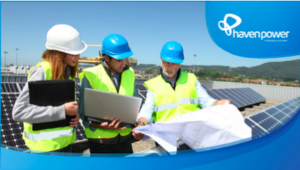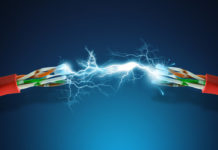 As the world of energy changes at an ever-faster rate, how can businesses find the partners they need to cut costs and carbon emissions by producing as well as consuming electricity?
As the world of energy changes at an ever-faster rate, how can businesses find the partners they need to cut costs and carbon emissions by producing as well as consuming electricity?
Back in Thomas Edison’s day, the way electricity worked was simple. On one side there were producers. They owned and ran big power stations that spun turbines and generated electricity. Then they sent the electricity through a nationwide system of cables and transformers known as the Grid to customers who turned on plugs and switches whenever they needed power.
Then the need to reduce carbon emissions led to the development of increasing sources of renewable energy. Rather than huge industrial power stations, this tended to come from smaller arrangements of wind turbines and solar photovoltaic panels.
And unlike in Edison’s day, the people who were producing this new energy were also the people consuming it. Or some of it at least.
So instead of a system of producers and consumers that Edison would recognise, we now have an increasing number of ‘prosumers’. These are individuals and businesses that both produce and consume their own electricity and export their surplus to the grid in return for payments from electricity companies like Haven Power. Feed in Tariffs (FiTs) financially reward small-scale producers by paying them for the electricity they generate – even if they use it themselves; and for any electricity they export, there are Power Purchase Agreements.
Naturally, this is particularly appealing to businesses. Electricity is no longer simply an unavoidable cost. And cutting carbon emissions by generating renewable electricity becomes a way of helping profits and the environment.
But more than simply changing one aspect of the relationship between energy supplier and customer, the rise of ‘prosumers’ has also brought about a complete transformation in the way power companies work with their customers.
Rather than buying power as if it was a commodity from an energy supplier, many businesses are now looking for a partner who is prepared to work with them to help them make the most of their assets.
Find transformative ideas for a new energy future at havenpower.com/change
Related stories:
Low Costa Mill Holiday Cottages achieve TripAdvisor Gold Eco status with renewable energy
Renewable electricity helps Gatwick Airport achieve carbon neutrality
What’s the future of energy (and the energy of the future)?
Follow us at @EnergystMedia. For regular bulletins, sign up for the free newsletter.



